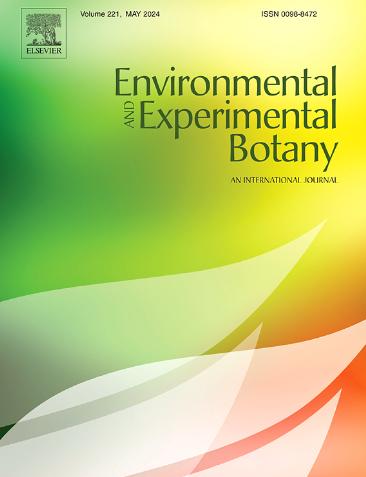Plant resistance to the whitefly Bemisia tabaci is compromised in salt-stressed Capsicum
IF 4.5
2区 生物学
Q2 ENVIRONMENTAL SCIENCES
引用次数: 0
Abstract
Climate change has profound effects on crop production, for example through increasing temperatures, and more frequent extreme weather events. Climate change can also lead to increased pest pressure. How plants cope under double stress conditions is dependent on pest species, environment, and plant genotype, and for many plant-insect interactions, this knowledge is lacking. The whitefly Bemisia tabaci is an important pest worldwide and can be destructive for pepper (Capsicum) production. Breeding resistant varieties could aid in combatting whiteflies in a sustainable manner. In this study, we aimed to identify Capsicum accessions with resistance to B. tabaci, and study how this resistance was affected by salt stress. We grew 25 Capsicum accessions under salt treatment, and measured B. tabaci survival and oviposition. We identified four accessions with increased whitefly resistance, exhibited as higher adult mortality. Under salt stress, growth of most accessions was inhibited, and Na+ accumulated in shoots. Importantly, in all plants that had experienced salt stress, whitefly survival and oviposition increased, essentially nullifying resistance in salt-stressed plants. When plants were treated with salt, the phytohormone jasmonic acid was reduced compared to whitefly-infested plants without salt, possibly resulting in reduced defense to whiteflies. The results of this study will contribute to a better understanding of pest resilient plants in a changing climate.
盐胁迫辣椒对烟粉虱的抗性受损
气候变化对作物生产产生了深远的影响,例如气温升高和极端天气事件更加频繁。气候变化也可能导致虫害压力增加。植物如何应对双重胁迫条件取决于害虫种类、环境和植物基因型,而对于许多植物-昆虫相互作用,这方面的知识是缺乏的。烟粉虱是世界范围内的一种重要害虫,对辣椒生产具有破坏性。培育抗性品种有助于以可持续的方式对抗白蝇。本研究旨在鉴定对烟粉虱具有抗性的辣椒材料,并研究盐胁迫对其抗性的影响。以25份辣椒为材料,在盐处理下,测定了烟粉虱的存活率和产卵量。我们确定了4种白蝇抗性增加的品种,表现为更高的成虫死亡率。盐胁迫下,大部分材料生长受到抑制,Na+在茎部积累。重要的是,在所有经历过盐胁迫的植物中,粉虱的存活率和产卵量都增加了,基本上抵消了盐胁迫植物的抗性。当植物被盐处理时,植物激素茉莉酸比没有盐的白蝇感染的植物减少,可能导致对白蝇的防御能力降低。这项研究的结果将有助于更好地了解在不断变化的气候中抗虫害植物。
本文章由计算机程序翻译,如有差异,请以英文原文为准。
求助全文
约1分钟内获得全文
求助全文
来源期刊

Environmental and Experimental Botany
环境科学-环境科学
CiteScore
9.30
自引率
5.30%
发文量
342
审稿时长
26 days
期刊介绍:
Environmental and Experimental Botany (EEB) publishes research papers on the physical, chemical, biological, molecular mechanisms and processes involved in the responses of plants to their environment.
In addition to research papers, the journal includes review articles. Submission is in agreement with the Editors-in-Chief.
The Journal also publishes special issues which are built by invited guest editors and are related to the main themes of EEB.
The areas covered by the Journal include:
(1) Responses of plants to heavy metals and pollutants
(2) Plant/water interactions (salinity, drought, flooding)
(3) Responses of plants to radiations ranging from UV-B to infrared
(4) Plant/atmosphere relations (ozone, CO2 , temperature)
(5) Global change impacts on plant ecophysiology
(6) Biotic interactions involving environmental factors.
 求助内容:
求助内容: 应助结果提醒方式:
应助结果提醒方式:


